After last season many of us were highly disappointed with the prospects of Austin Rivers being a staple for the New Orleans Pelicans moving into the future. He posted what some considered was the worst rookie-season ever.
Much of this criticism was overblown quite a bit because of his family name and the praise he received coming out of high-school.
However, after a solid off-season and a strong summer league many fans and commentators look at Austin Rivers a little bit differently. The question that I’ve heard many ask is whether Austin Rivers is actually better.
Let’s investigate.
Compare and Contrast
The easiest way to vaguely gauge whether Rivers is indeed better is to look at the numbers.
(Numbers from Basketball-Reference.com — As of 27th of January 2014).
Across most categories Rivers has improved. His PER (Player-Efficiency-Rating) is up by 69%, he’s drawing more free-throws and his offensive rating is also up. In addition he doesn’t turn the ball over as much (14.5% down to 9.8%).
However, when comparing with the league average (including all players because his roster spot could theoretically be used by a big-man) he isn’t a revelation. His efficiency is still sub-par and both his offense and defensive ratings fall below the league mark.
The very interesting thing to note when comparing seasons for Rivers is his significant decrease in minutes played. Monty Williams has stated that it’s been tough for Austin to get playing time due to Jrue Holiday, Tyreke Evans and Eric Gordon being ahead of him on the depth-chart.
This should not be an issue moving later into the season with injuries opening up opportunity for Rivers.
He’s a good defender
Many critics think that Rivers is a bad defender. Notable NBA tweeters even say that any defensive improvement is only one that is minor from horrific to bad. This is wholly incorrect and ignores where he is good defensively.
Rivers does an excellent job of defending the pick and roll ball handler. He fights through screens and can be very good at anticipating where his man is going with the ball. This is important in the NBA because the majority of offensive sets start or finish with a pick-and-roll.
Austin surrenders 0.63 points per possession when defending the pick and roll ball-handler (mySynergySports). This is good for 23rd in the league. Additionally he is able to limit his opponents field-goal percentage to 34.8%
If you think I’m cherry picking statistics here let me say this, of defensive possessions this situation accounts for 36.3% of results; the most of any type of defensive possession Rivers faces.
Here are a couple of examples:
The first of these is my favourite. Rivers does an excellent job twice on this possession. The first is the pick and roll.
Rivers knows the screen is coming. He knows that Withey is going to help him out giving him time to recover. But that’s the important part, he must recover so that Jeff can leave and return to his own man. If Austin doesn’t recover the it’ll either leave Withey’s man open or Jeff will leave giving Victor Oladipo a wide open drive.
Rivers recovers and cuts off Oladipo. The Magic decide to reset their offensive possession.
Tyreke Evans’ man drives right to the basket and Rivers helps cut him off, but not before anticipating the pass out to Oladipo. Austin recovers and Oladipo isolates.
Austin gives Oladipo the drive left but knows he has to get to a spot if he decides to drive in that direction. Rivers moves his feet and gets to the spot needed to cut off his opponent. Oladipo pushes off Rivers (an offensive foul, but not called) and shoots a fadeaway jumper which is promptly missed.
The second example is another case of Rivers having good foot-work and cutting his man off to the spot.
Miller is getting a screen from the left, but wants to drive right (does he ever go left?) Rivers shades giving Miller the look he wants, a right-hand drive. Austin does this to take away the screen. However Rivers also must recover downwards to stop his opponent from getting a layup or a jumper.
Austin does just this by cutting off Miller.
Miller now decides to post up Austin, since he figures he can bully him. Something that last year was easy to do against Rivers. Now, not as much.
Rivers holds his ground and Miller takes a turnaround jumper which is then bricked.
Both these examples give reason to believe that Austin is making strides. He is moving his feet, fighting through screens and not getting buillied. However this is not the only thing. He now is better at identifying what his opponent is trying to do, where his help is coming from on the pick and roll and what he needs to do. This is the biggest improvement in this area of the game.
The area that Rivers appears to struggle in is the “spot-up” category. Meaning that when defending off the ball Austin will leave his man or give him the separation to either catch and shoot a three/long-two or give him separation to initiate a drive to the basket.
This would appear to be a Monty Williams philosophy of “helping your team-mates out.” All of the other New Orleans Pelicans guards rank very weakly in the defensive spot-up category.
Let’s look at couple of examples:
Here the Kings get a decent look. Aminu is defending the post and likely will need help, as is Monty Williams’ defensive philosophy. He rarely leaves a man one-on-one in the post. Team-mates help, always.
So Rivers has responsibility of going down to double the post. Gordon then is supposed to help Rivers by taking Jimmer and either Evans or Withey will take Gordon’s man (Ben McLemore).
But here Rivers was in two minds. He wasn’t sure if Aminu actually needed help. Gordon doesn’t help out Rivers and Austin is forced to quickly recover even though it’s too late.
Jimmer jacks up a three and nails it. Communication from Gordon, Rivers and Aminu was poor. No one knew what each other man would do. This is an endemic problem as the Pelicans are woeful defending spot-up shooters.

In this second example Rivers is defending Derek Fisher in the corner. Roberts is defending the point, Amundson defending the screener. Lou screws up by not hedging on the pick and roll, but he sinks back probably because the ball is 30+ feet away from the basket, so in hindsight Roberts does a poor job here. He tries to fight through a screen when he should be sinking back.
Jackson (the Thunder’s PG) drives hard to the basket and all Pelicans sink into the paint and help out, as per Williams’ defensive philosophy. Rivers is unsure what to do. He recovers as Jackson passes to Fisher but it’s too late. Derek is well into his shooting motion and sinks a three and is fouled.
The question here: “Is Austin Rivers solely responsible for this?” The answer is clearly no. This happens time after time. A Pelicans guard is beat either because he guesses wrong or the big-man does a poor job of containing the ball handler/roll-man.
The New Orleans players help out their man leaving plenty of opposing players open for a good shot.
It’s not necessarily his fault, but Rivers and the Pelicans have a long way to go in this aspect of the game.
Has he improved aesthetically?
The noticeable difference with Austin is his comfort level on the court. Before, players sought to take advantage of him whenever he was on the court.
Now he is picking his spots. There are two things he does when on offense. He is either going to drive to the basket for a layup or he’s going to pass it. Pretty basic but there is a problem. He doesn’t shoot jumpers.
Rivers is 0-22 from 10ft to 3-pointers. He hasn’t made a single jump-shot in this range. Which is absolutely staggering. It’s an area of his game he has to improve on. It’ll open up doors on the pick and roll. When defenders cut off his drive he could rise up and shoot a jump-shot.
For now though Austin is driving to the basket to look for his layup or floater, which is fine because at least he’s not turning the ball over. He has a 9.8% turnover rate which is pretty damn good. Additionally when he does attempt a shot at the rim he has an eFG% of 61%. This is up from 48% last year.
He is trending upwards this season as his FG% moves along with his Points-Per-Game: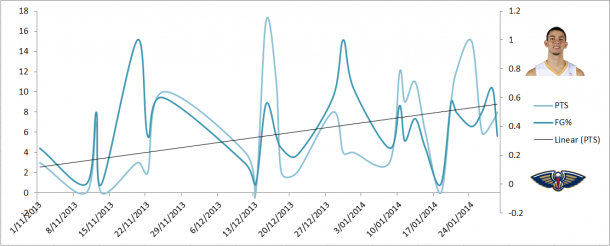
Watching Rivers you can see he’s more comfortable. He’s developing aspects of his game and is working towards his strengths. The coaching staff and trainers should be applauded for helping with this. Developing a platform for Austin to work from in his NBA career is essential.
Rather than being the “ball-hog” and “selfish player” he was labelled coming out of college Rivers is developing into a solid NBA player who can defend, draw free-throws, attack the basket and make smart decisions.
If he continues his hard work and continues to add to his game he should turn out to be a solid NBA player. To answer the question, Austin Rivers is indeed a better basketball player. He’s improved significantly enough for fans and commentators to get excited.
Now if he could somehow get some minutes on the court…
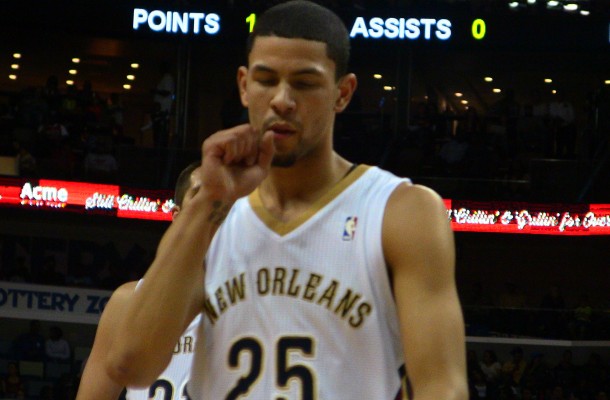

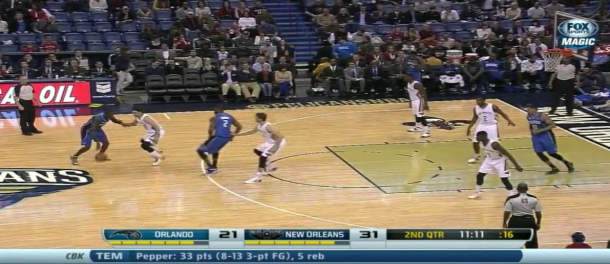
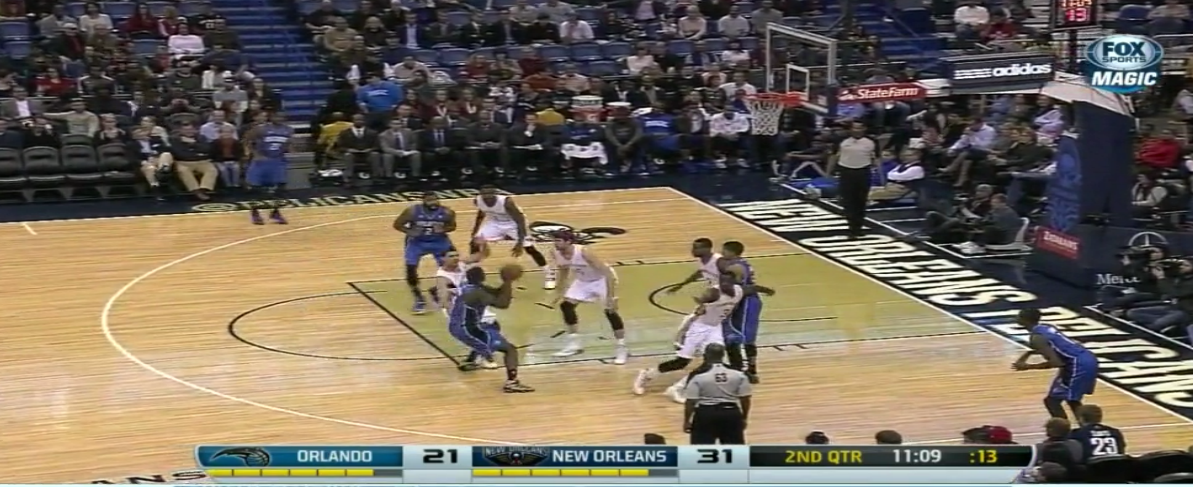
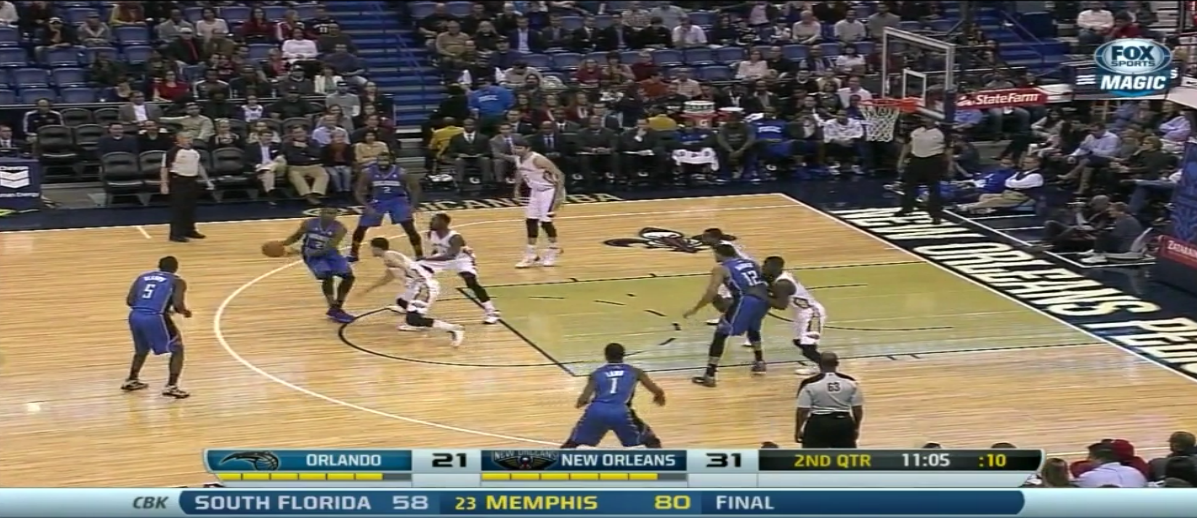
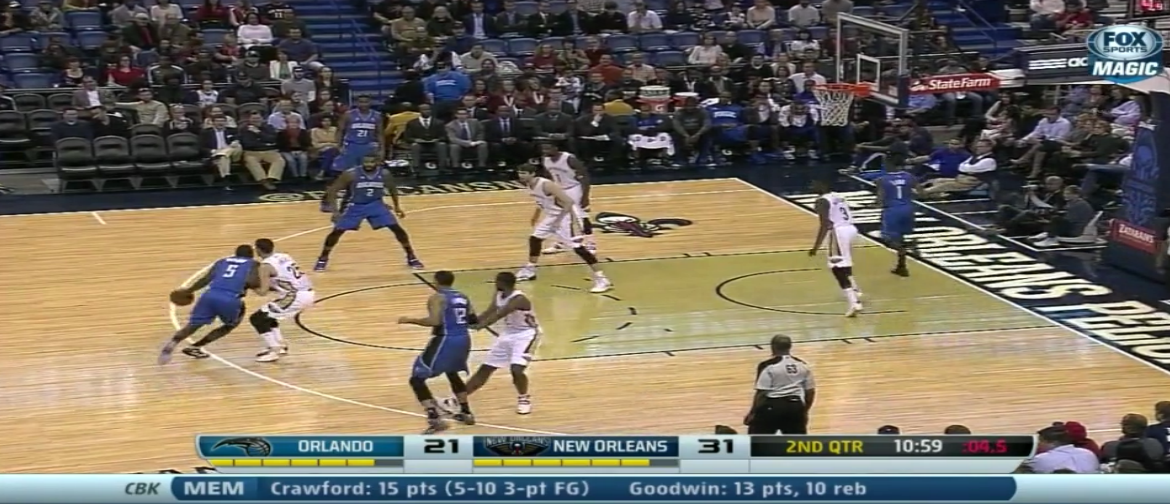
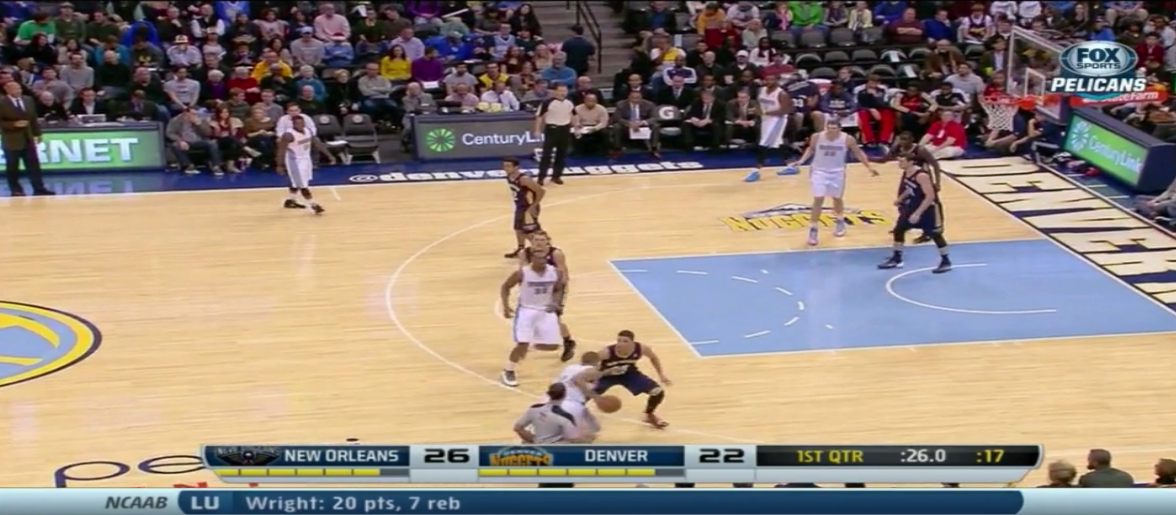
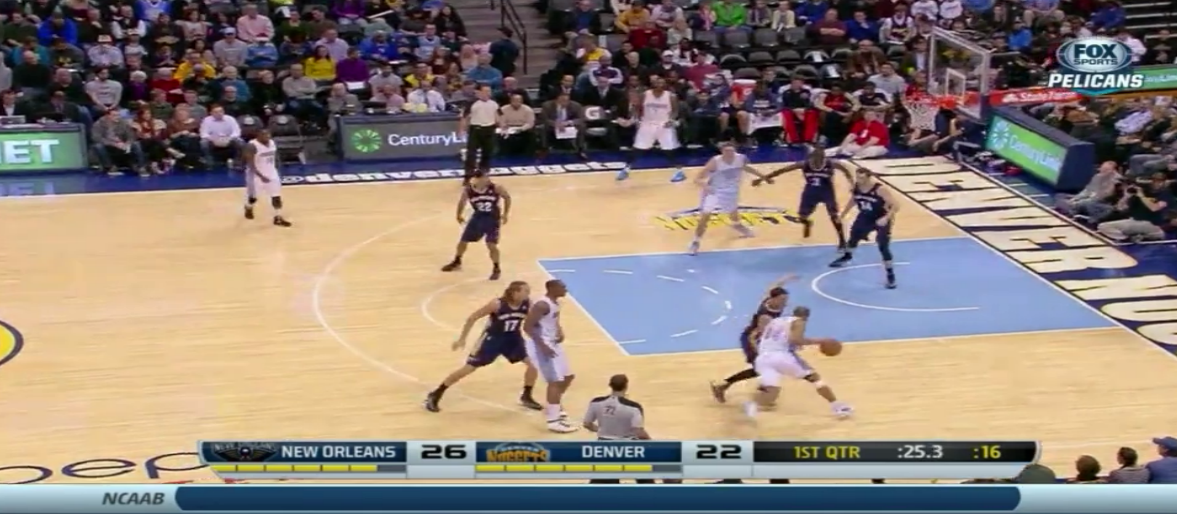

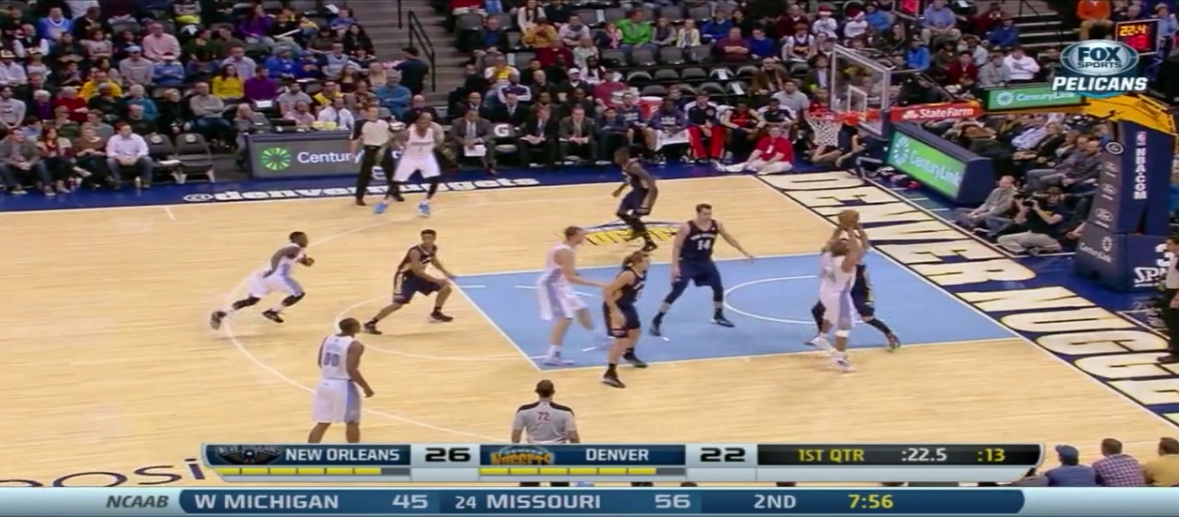
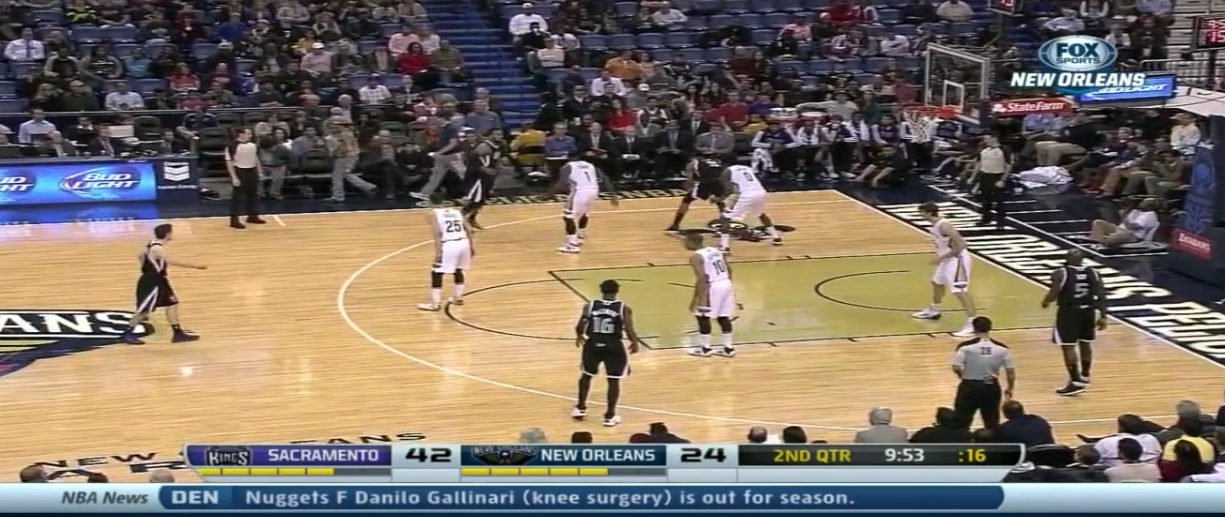
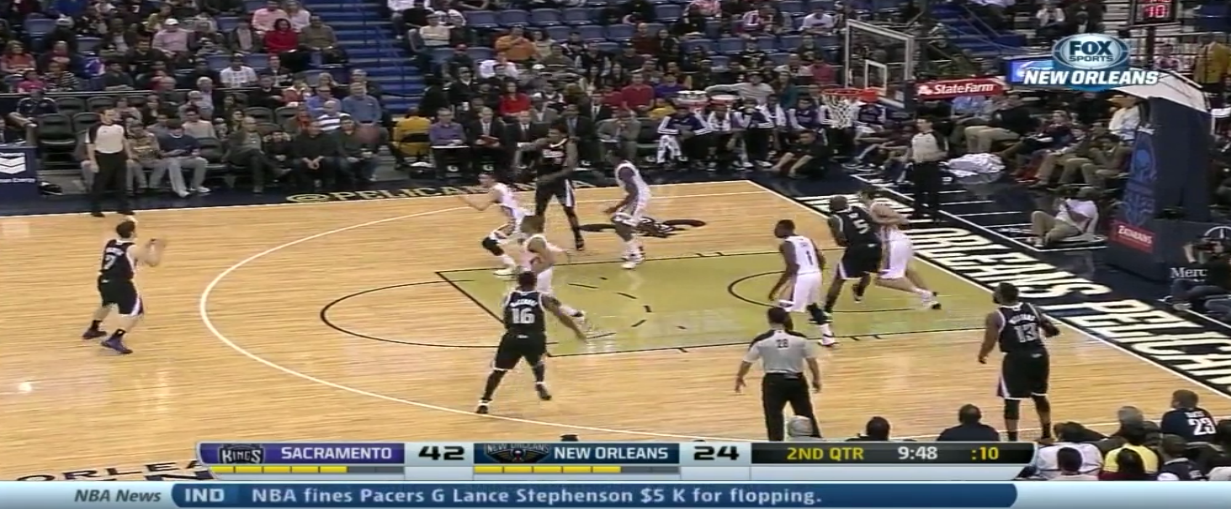
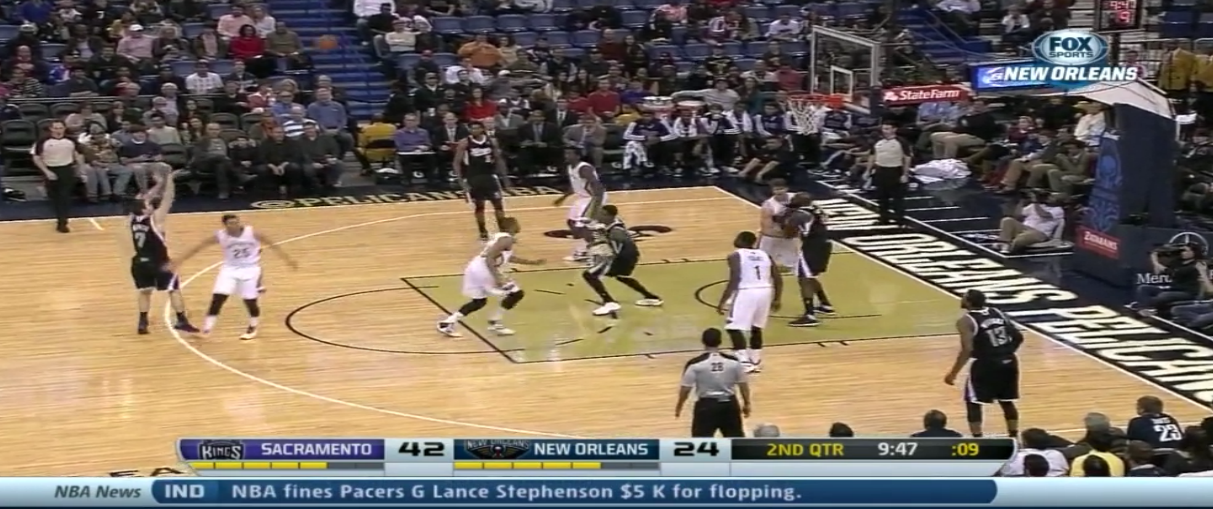
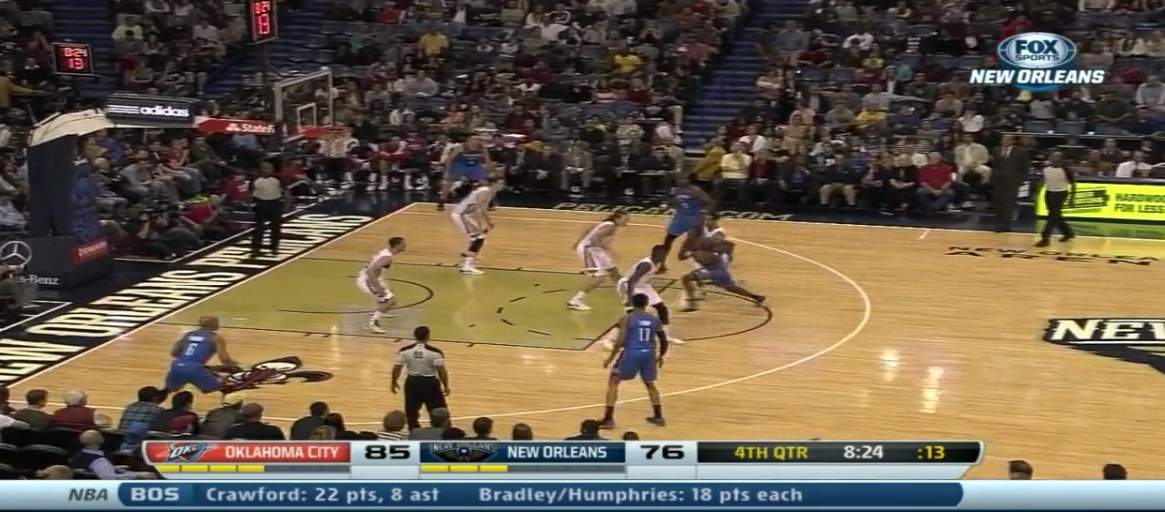
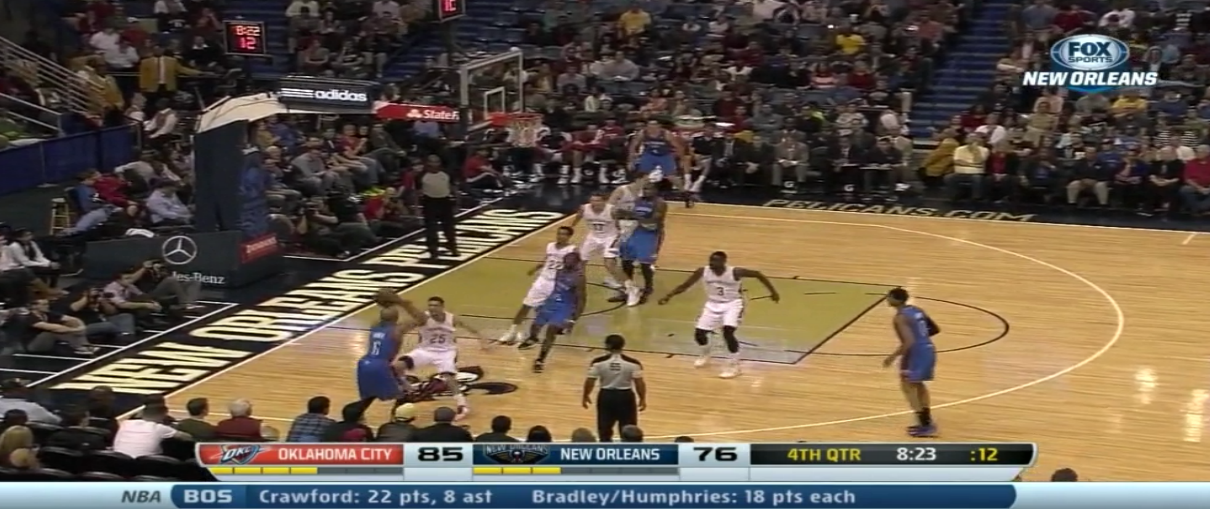
18 responses to “Is Austin Rivers Better?”
I do like his defense.
His on ball defense is much improved and even an asset. I don’t know if he is a “good” overall defender though.
Scheme plays a role, but Rivers- like every Pelican- falls asleep off ball. Some of that is maybe they are thinking too much on the court, but some of that is also just poor awareness on the players’ part. For a guy that works as hard as he does, I have confidence he will fix that. It just takes time.
Rivers will never meet the (unwarranted) hype that was given to him even in the predraft run up. His ceiling is likely as a D and 3 guard (48% on 1 catch and shoot 3PA/G). If he can become Mario Chalmers, that is a huge win for him.
Great interview with Kirilenko on all things defense from The Brooklyn Game. Really insightful and spends most of the time talking about the often overlooked mental aspect of NBA defense.
http://thebrooklyngame.com/andrei-kirilenko-feature-anatomy-off-ball-superstar/
Off-the-ball defense is the toughest defense for a player to comprehend and master as it requires alertness when the ball isn’t in your area…it also requires that a player learn when -where and how to help…folowed by building back up the defense with a proper closeout……Rivers ‘attention span ” off the ball needs some work.
thouse He’s “good” in the aspect of defending the PnR man. Tries to be physical, fights through screens and does a decent job of anticipating where his man is going.
As I stipulated in the piece his off-ball defense is pretty bad. But could be put down to a schematic problem. A player just doesn’t know if their team-mate needs help or if he’s fine on his own.
GerryV Precisely. It’s very tough because this is where the “team” aspect of basketball really comes through. When to help, when not to, how hard you commit, etc.
Rivers, like all Pelican guards, do a poor job of making the right rotations.
yaboytonez Short and sweet. I like it.
OK, but the real question, that no one knows the answer to, is will Rivers develop into at least a 2nd team guard who can outplay other 2nd teams guards?
if he can be our defensive specialist to guard both the PG and SG…..i will gladly take that…
can someone pls tell me why Roberts continues to start ahead of Rivers?! i really do not understand this, confuses the hell out of me
also why is New Orleans reluctant to sign Pierre Jackson? and maybe looking at packaging roberts in a trade
http://www.bourbonstreetshots.com/2014/01/20/trying-to-find-the-smile/
Here is a 2 week old take on why.
They agreed with PJ they would not sign him until at least Summer, per Demps. Some believe they could revist this.
Jason Calmes thanks mate i missed this post. ive also heard reports that Jasksons representatives have been given the go ahead to look at trade options.
i really do feel that Jaskson would be a great addition to this New Orleans team the dude can flatout score! and already has a better scoring skill set then Roberts.
i know his very limited defensively with his height and length but he strikes me as someone that can be a very pesky defender with his quick step and athletism.
Great article James…I think Rivers is improving well and being so young I still think he has time to develop into a promising player.
Pelicans issues are more in the frontcourt. When they sign Babbitt, it will be harder yo sign Pierre if they even have that on the to do list.
504ever Hi 504ever. My belief is that a players development really shouldn’t be dictated on things like that. My view is that you try to look at his game, find areas to improve and work to his strengths. The results will take care of themselves.
I think he has that potential. It’d be foolish for us not to hope for that. Can we say definitively that he will? No, that’d also be foolish.
I hope you get where I’m coming from. 🙂
mojart He’s got the foundations for it. Needs to get stronger, needs to continue to develop. I think the team also needs to develop as well. Defense is about how in-sync a team is. Every player knows where each other is going. Everyone knows how to be aggressive on defense and when to be. It’s like an orchestra playing in unison.
xman20002000 I’m glad you touched on that point. He’s only 21 years old. In a season or two it’ll be interesting to see where he’ll be.
It makes us appreciate how awesome Anthony Davis is too… That dude is amazing.
Pelican Poster Thank you very much for the kind comment. He is a promising player and I hope that he continues his upward trend. Still has a lot to work on. I wouldn’t be surprised if he was traded to a team that has more need at the guard position.
I just hope it doesn’t hinder his development.
jsgrayson “Good” is a nebulous term on defense.
It’s a bit generous to dump his off ball problems on scheme. Do I think the Pelicans run a silly scheme at times? Absolutely. The main reason it is silly is because the almost all of the players aren’t smart enough to run it.
The Kirilenko piece I linked looks at it a bit differently than just a matter of scheme. Any thoughts on that?